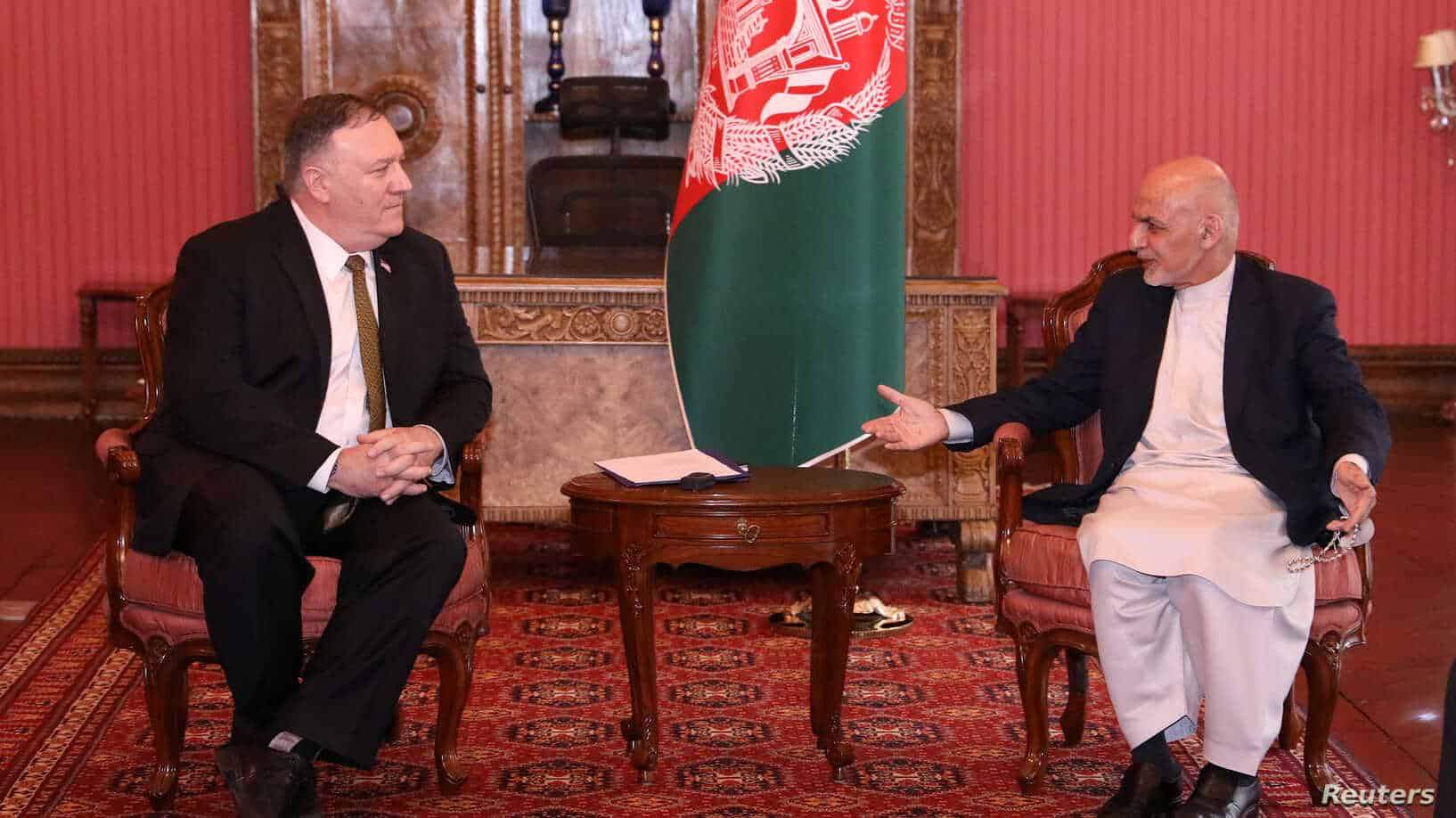Pompeo in Kabul to Resolve Crisis, Salvage Deal

U.S. Secretary of State Mike Pompeo made a previously unannounced visit to Kabul Monday to try to resolve a political dispute between Afghan President Ashraf Ghani and rival Abdullah Abdullah.
The dispute threatens to derail a deal that the United States and the Taliban signed last month. Both Ghani and Abdullah declared themselves president of the country after a contentious election.
“The fear is that unless this crisis gets resolved and resolved soon, that could affect the peace process, which was an opportunity for this country that has stood in this 40 years’ long war. And our agreement with the Talibs (Taliban) could be put at risk,” said a senior State Department official.
The trip comes as world leaders are limiting travel due to the coronavirus pandemic, and the Trump administration’s Afghanistan czar, Zalmay Khalilzad, remains in Kabul trying to help sort out the political mess. Analysts say Pompeo’s trip speaks to the gravity of the dispute.
One of the biggest concerns, say analysts, is that given the tribal culture and history of tensions among various ethnic groups, the highly polarized environment could end up causing a split in Afghan security institutions or a wider rift in the society. After the withdrawal of the Soviet Union from Afghanistan in 1989, a civil war among various Afghan factions caused widespread havoc and thousands of deaths, eventually giving rise to the Taliban.
The State Department official said the U.S. is pushing for an inclusive government that is acceptable to both Ghani and Abdullah.
The dispute has led to a delay in the start of negotiations involving the Taliban and other Afghans.
“We were supposed to have inter-Afghan negotiations, starting a few days ago. That has not happened because of this dispute, because they couldn’t yet agree on a delegation that will go sit with the Talib (Taliban),” the official said.
According to the deal between the U.S. and the Taliban, a delegation of Afghans who represented all political factions as well as women, minorities and human rights activists in the country, would negotiate with the insurgent group on the future of Afghanistan after the withdrawal of U.S. troops.
“It has taken quite a while and they haven’t still finalized the list that is acceptable…to both sides,” the U.S. official said.
Prisoner release
Meanwhile, after weeks of squabbling, the Afghan government and Taliban made their first direct official contact Sunday using Skype video conferencing facilities to discuss the issue of prisoner releases.
“The over two-hour technical discussion today was important, serious, and detailed. My thanks to all sides. Everyone clearly understands the coronavirus threat makes prisoner releases that much more urgent,” tweeted Khalilzad, the U.S. special representative for Afghanistan reconciliation.
The issue of the release of up to 5,000 Taliban prisoners in return for up to 1,000 Afghan security personnel has been the other stumbling block in the start of the inter-Afghan negotiations that were supposed to have begun on March 10.
A Qatari Foreign Ministry statement called the talks “fruitful and constructive,” saying the two parties discussed important issues related to the lists of prisoners and how to verify them and the locations of their release and transfer them to the agreed locations.
The United States and Qatar, the two parties that facilitated the contact, made sure to identify them as “technical talks” focused on prisoner release as a way to avoid making them sound like the start of official negotiations.
The Taliban have strongly refused to negotiate with the Afghan government, calling it a puppet of the Americans.
Photo: Reuters











